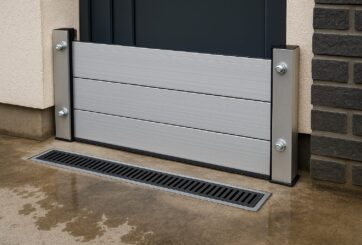
‘Self-healing’ house in Greece will dare to defy nature

The University of Leeds’ NanoManufacturing Institute (NMI) will play a crucial role in the £9.5 million European Union-funded project by developing special walls for the house that contain nano polymer particles – these will turn into a liquid when squeezed under pressure, flow into the cracks, and then harden to form a solid material.
NMI chief executive Professor Terry Wilkins said: “What we’re trying to achieve here is very exciting; we’re looking to use polymers in much tougher situations than ever before on a larger scale.”
Nanotechnology involves making things with useful scientific properties on a tiny scale – less than one-hundred thousandth the width of a human hair.
The house walls will be built from novel load bearing steel frames and high-strength gypsum board. But they will be unique for another reason too – they’ll contain wireless, battery-less sensors and Leeds-designed radio frequency identity tags that collect vast amounts of data about the building over time, such as any stresses and vibrations, temperature, humidity and gas levels.
“If there are any problems, the intelligent sensor network will alert residents straightaway so they have time to escape,” added Professor Wilkins.
The Leeds team also includes Dr Roger Gregory, chairman of University spinout company Instrumentel Ltd, who said: “Leeds are world leaders in designing wireless networks for extreme environments and hard-to-access places. Even if the building totally collapsed, the sensors would still let you pinpoint the source of the fault.”
Instrumentel will work in partnership with Dr Greg Horler in the School of Electrical and Electronic Engineering to deliver this potentially life-saving technology.
Meanwhile, Professor Anne Neville’s team in the School of Mechanical Engineering will research new ways of designing the polymer nano-particles required.
Professor Wilkins said: “Once we have the optimum design, we could quickly start producing thousands of litres of nanoparticle fluid, adding just a tiny percentage to the gypsum mix.”
Leeds is the only UK university asked to join 25 other partners in the project, led by the German building manufacturer Knauf. Due to be completed in December 2010, the work is worth around £980,000 to Leeds.







